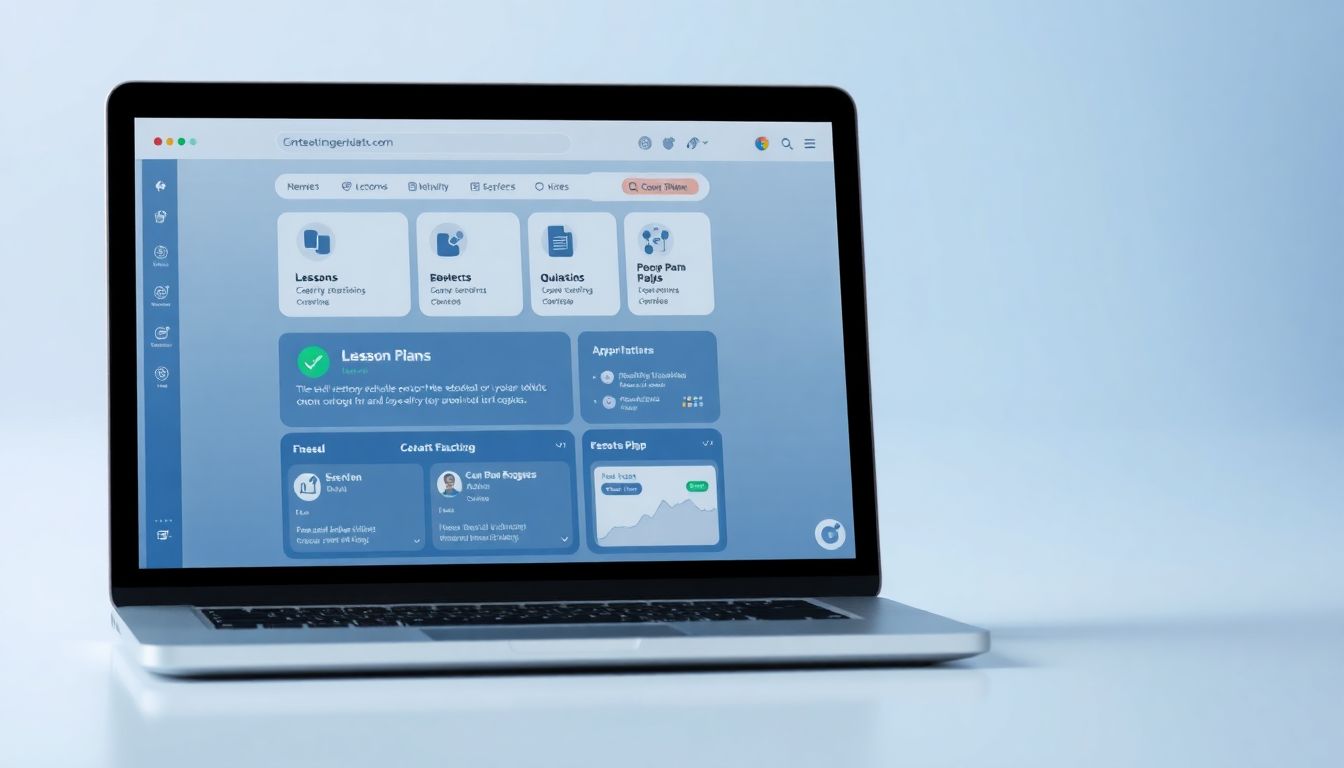
Education Complete Web App & Mini App React Native Web Source Code: Your Ultimate Guide
Introduction: Revolutionizing Education with React Native
The rise of mobile and web technology has transformed education dramatically. As students and educators alike seek more engaging and flexible learning solutions, educational apps have become essential. React Native stands out as a preferred framework for building these applications. With its ability to create high-quality, cross-platform apps, it’s no wonder that many developers turn to it. However, the use of nulled source code raises both risks and opportunities. Understanding this can help you make informed decisions.
Exploring the Education Complete Web App
Key Features of the Web Application
A comprehensive educational web app should include several key features:
- User Accounts: Secure registration and login options for students and teachers.
- Course Management: Ability to create, manage, and enroll in courses.
- Interactive Content: Multimedia support for videos, quizzes, and discussions.
- Progress Tracking: Tools for monitoring student performance and progress.
- Communication Tools: Chat or forum features for enhancing collaboration.
User Interface and User Experience (UI/UX) Design Considerations
Creating a user-friendly design is vital. Here are some design elements to prioritize:
- Simple Navigation: Intuitive menus allow users to find features quickly.
- Responsive Layout: The app should function well on desktop and mobile devices.
- Visual Appeal: Bright colors and clear typography enhance engagement.
- Accessibility Features: Support for different learning needs makes the app inclusive.
Monetization Strategies for the Web App
To generate revenue, consider these strategies:
- Freemium Model: Offer basic features for free, charge for premium content.
- Subscription Services: Monthly or yearly subscriptions for full access.
- Ads: Integrate relevant advertisements without disrupting user experience.
- Sponsorships: Partner with educational institutions for sponsored content.
Deep Dive into the React Native Mini App
Advantages of Mini App Development for Education
Mini apps offer unique benefits:
- Speed: Faster to develop and launch compared to full-scale applications.
- Low Cost: Reduced development costs allow for a wider audience reach.
- Targeted Features: Focus on specific functions, improving user experience.
- Easy Updates: Quick updates based on user feedback or changing needs.
Technical Specifications and Development Process
To build an effective mini app, understanding technical specifications is crucial:
- Frameworks: React Native libraries support rapid development.
- APIs: Integrate third-party APIs for enhanced functionality.
- Testing Tools: Use automated testing to ensure reliability.
Seamless Integration with the Web App
Linking your mini app with the main web application can enhance user engagement. Consider these integration techniques:
- Single Sign-On: Allow users to access both platforms with one login.
- Data Syncing: Ensure user progress is updated across both apps.
- Shared Resources: Utilize a common database for courses and materials.
Security and Ethical Considerations of Nulled Code
The Risks Associated with Using Nulled Source Code
While nulled source code can seem appealing due to its low cost, it comes with significant risks:
- Malware Threats: Nulled code can contain harmful software.
- Lack of Support: Updates and help are not available with nulled versions.
- Performance Issues: Unoptimized code may lead to crashes and downtime.
Legal Implications of Copyright Infringement
Using nulled code may result in legal consequences. Copyright infringement can lead to fines and lawsuits. Always consider the legality of the source code you choose.
Best Practices for Secure App Development
To minimize risks, follow these best practices:
- Use Licensed Code: Always opt for legitimate source code.
- Regular Updates: Keep your app updated to patch security vulnerabilities.
- Conduct Audits: Regularly check your code for any threats or issues.
Deployment and Maintenance
Hosting Options for Web and Mini Apps
Choosing the right hosting service is critical for performance:
- Cloud Hosting: Offers scalability and reliability for educational apps.
- Shared Hosting: A more cost-effective option for smaller applications.
- Dedicated Servers: Provides maximum control and performance.
Strategies for Ongoing Maintenance and Updates
Maintaining your apps is vital for user satisfaction:
- User Feedback: Regularly gather user input for needed improvements.
- Performance Reviews: Conduct monthly checks on app performance.
- Regular Updates: Schedule updates for new features and bug fixes.
Troubleshooting Common Issues
Common problems can arise. Here’s how to address them:
- Slow Loading Times: Optimize images and scripts for better speed.
- Login Issues: Ensure your authentication system is functioning well.
- Content Updates: Make it easy for admins to add new content.
Future Trends in Educational App Development
Integration of Emerging Technologies (AI, VR/AR)
The use of innovative technologies will shape the future of educational apps. For instance:
- Artificial Intelligence: Personalized learning experiences tailored to individual students.
- Virtual Reality/Augmented Reality: Immersive learning experiences that enhance engagement.
Personalized Learning Experiences
Adapting learning paths for each student is becoming standard. This can improve retention and success rates significantly.
Accessibility and Inclusivity in EdTech
Creating an inclusive environment is essential. Developers should focus on:
- Assistive Technologies: Ensure compatibility with screen readers and other tools.
- Customizable Interfaces: Allow users to adjust layouts and text sizes.
Conclusion: Harnessing the Power of React Native for Educational Success
As educational needs evolve, React Native offers a powerful solution for developers. Both full web apps and mini apps can provide engaging, user-friendly experiences.
Key Takeaways: Benefits and Drawbacks
- Benefits: Cross-platform solutions, rapid development, and cost savings.
- Drawbacks: Risks of using nulled code and legal implications.
Call to Action: Responsible Development and Ethical Sourcing
Focus on ethical practices in app development. Choose reliable sources for your code, and prioritize user experience. Let's create educational solutions that make a difference!

You must be logged in to post a comment.